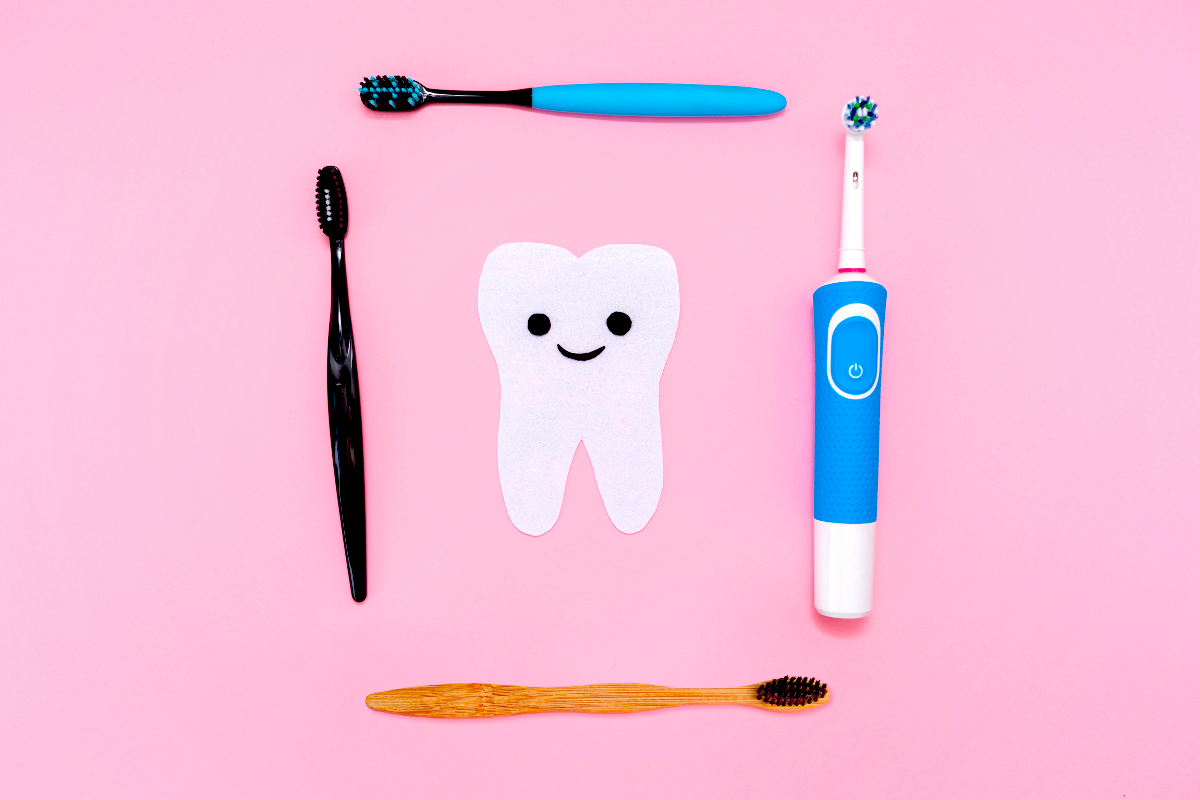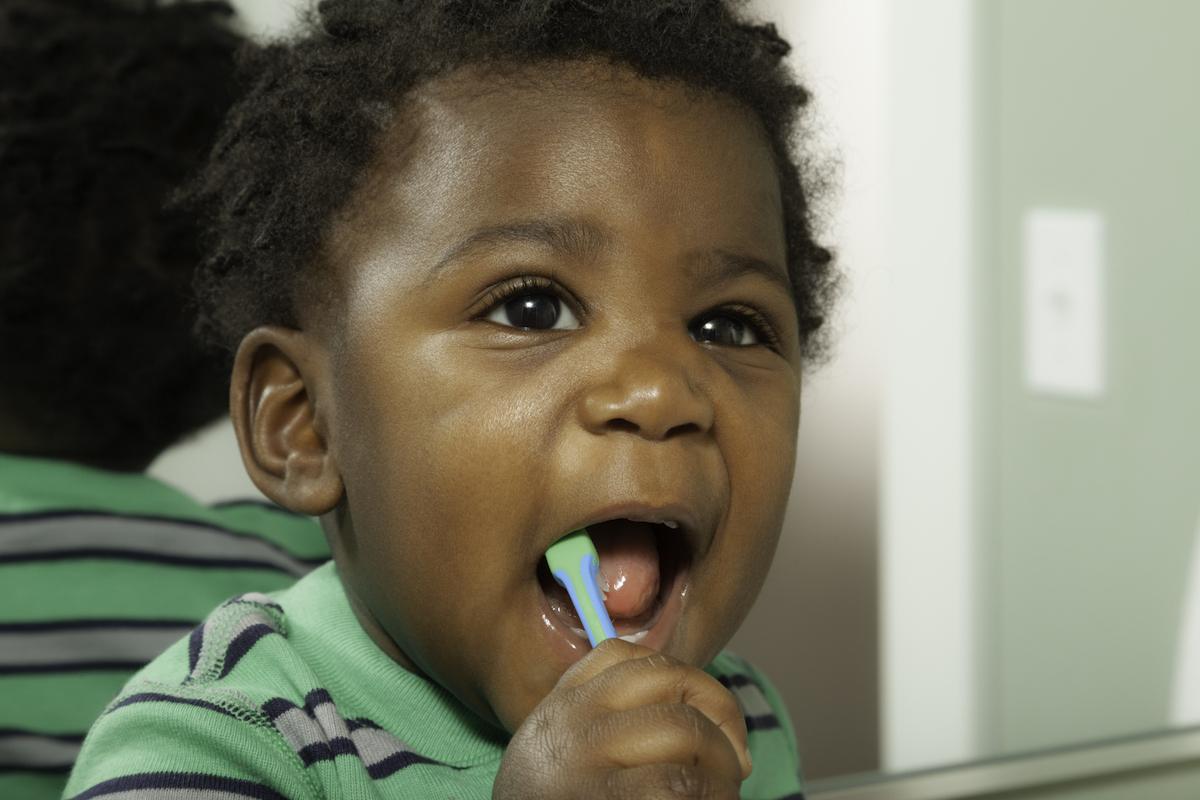Municipal water fluoridation has rapidly gone from a niche topic, of interest to some dentists and a few activists, to center-stage policy issue. Robert F. Kennedy Jr., the Secretary of Health and Human Services, has expressed skepticism. Utah’s governor signed a bill to prohibit fluoride use in the water supply throughout the state. Debates have sprung up in cities around the country.
The central tension in this discussion is between the benefits of fluoride, which are in tooth health, and some possible neurodevelopmental risk from exposure in childhood and in utero. To evaluate this tradeoff, we need to look at the strength of evidence on both sides.
What are the benefits of fluoride?
At some level, the answer to whether fluoride benefits teeth is an obvious “yes.” We have a lot of both theory and evidence to support this. Topical fluoride rinses, for example, have been shown in many randomized trials to improve dental health and reduce cavities. Fluoride works by interfering with the ability of oral bacteria to make acid, among other benefits.
Fluoride can be found in various sources (naturally occurring in groundwater and some foods; added to toothpaste and mouth rinses), but not everyone gets adequate amounts. The decades-old solution, at least in some areas, was to add fluoride to the municipal water supply. This increases the amount that everyone gets, just as a part of their natural water-drinking.

There is a strong equity argument for fluoride in water, since cavities are more common in lower-income areas. This may be true for many reasons, but providing equitable access to fluoride is a possible blanket solution.
The question of whether fluoride in water is effective is a bit more complicated than the question of whether fluoride in general is good for teeth. If people are getting enough fluoride in their diet, then the water fluoridation may be unnecessary. Having said that, a review of data on this topic does show a significant reduction in cavities after water fluoridation is introduced.
Most of this data is from before 1975, but there is some newer data from Israel, which banned community water fluoridation in 2014. A time trend analysis from that country found about a doubling in dental visits after fluoride was discontinued there.
Overall: there are many reasons, both theoretical and data-based, to think that having fluoride in municipal water could decrease cavities and improve tooth health.
Can fluoride in water impact IQ?
The primary concern raised with fluoride is the possible impacts — either through prenatal or early life exposure — on developmental measures like child IQ. The core issue in both cases is that we know that at some level, fluoride can be harmful. The question for the data is whether that level is anywhere near the levels of water fluoride in the U.S. water system.
The literature informing this debate is large and dates back many decades. Most papers on this topic compare children living in areas with higher fluoride in their water supply to those living in areas with lower fluoride.
The results appear at first glance conflicting — some studies link higher rates of water fluoride to lower IQ; others do not. Ultimately, though, we can understand this data by seeing that very high fluoride levels in water do seem to carry some risk but that this risk doesn’t show up when we look at fluoride at the levels that are typical in municipal water systems. The high-fluoride water levels are generally driven by high levels naturally occurring in groundwater.
The best visualization of this split comes from this summary paper, published in 2023. What the authors do is combine a large number of studies that all do basically the same thing: look at the relationship between water fluoride levels and child IQ. Their insight, though, is to separate these studies into those where the average level of fluoride is high versus low.
Fluoride levels are measured in milligrams per liter (mg/L). The authors have one group of studies in which the “high” fluoride areas have an average of 3.7 mg/L and the “low” areas an average of 0.7 mg/L. These studies are mostly run in India and China, where fluoride levels are high due to naturally occurring fluoride in the groundwater.
They then have a second group of studies in which the “high” fluoride areas have an average of 0.9 mg/L and the low ones an average of 0.3 mg/L. These studies are mostly run in Canada and Mexico and, at least in the Canadian case, have levels that reflect municipal fluoride. This group of studies is relevant to the conversations we are having in the U.S., where water fluoride levels are lower.
For reference, the World Health Organization states that a safe level of fluoride in drinking water is 1.0 mg/L.
Although in a sense, the two groups of studies look like similar analyses, they actually ask very different questions. In the first case — the studies in India and China, with the overall high levels — the study asks whether there are benefits in moving from an unsafe level of fluoride to a safe level. In the second case — with the overall low levels — the study asks whether there are benefits to reducing fluoride from an already safe level to a lower level than that.
In the graph below, I show the estimated impact of a fluoride increase in these two groups.
For studies in the upper group, where the high levels are really high, the data does suggest a reduction in IQ scores with higher fluoride levels. For the lower group, where all the levels are in the safe range, we do not see any significant impact.
This is more or less the whole story, echoed in other meta-analyses and individual studies. A 2025 meta-analysis of the relationship between prenatal or postnatal fluoride exposure and child IQ showed impacts when considering all data. However, the authors found no impacts when they limited to studies that had water fluoride levels of 1.5 mg/L or less.
Looking at this research all together: high levels of fluoride do seem to have some risks, but lower levels do not. It’s like many things. A little bit is fine (in this case, good for teeth), and too much is bad. And in case you’re wondering, you don’t have to worry about your kid swallowing fluoride toothpaste.
Are there risks to fluoride in pregnancy?
These studies focus on overall exposure levels, which could occur prenatally or throughout childhood. There are also some specific studies in pregnancy, most notably one in Canada that looked at the relationship between fluoride in municipal water and child IQ. This study caused a lot of concern because it suggested that, at least for male children, exposure to fluoride during pregnancy caused a very large drop in IQ.
But a deeper dive into that paper leaves questions. Although most of the exposure levels in the paper are low, there are some areas with very high exposure — probably due to naturally occurring high levels — and those areas are very important in driving the results. The results also change significantly when the authors adjust for other differences across families, which makes it seem likely that if we could see more details about families, it would change the results more. Finally, it’s not clear why such results would show up for boys and not girls.
Overall, these results are less compelling than how they have been covered in the media. Also, this is only one paper, with a few hundred subjects. It should be taken in context with the rest of the literature.
It’s not that concerns about fluoride are completely misguided. It is true that at very high levels it might cause a concern. However: there is simply little evidence that fluoride at the levels we experience in the U.S. with municipal fluoride would have any negative impacts on pregnancy, babies, or children. And there is a reason to put fluoride in the water, which is that it’s good for your teeth.
How is fluoride monitored?
Two final questions that come up in this discussion are the issue of where the fluoride added to municipal water comes from and whether we can be sure the levels are within the safe range. The U.S. aims for a level of 0.7 mg/L and to not be above 2 mg/L.
To the first question: Fluoride is a byproduct of a process that also produces some fertilizers. Much of the fluoride added to water supplies is extracted from phosphate rock (this is why naturally occurring fluoride levels vary across the world). Processing these rocks produces (among other things) concentrated fluoride, which is then added to water.
To the second question: Community water suppliers monitor their water, and the CDC tracks this. A systematic report focused on 2016-2021. The authors found only 0.01% of the time when the levels were above 2 mg/L. To the extent that there were errors, they tended to be in the other direction — levels were too low in 16% of cases. This provides strong support for the safety of the fluoride levels in municipal water supplies.
The bottom line
- Fluoride in municipal water has been shown to reduce cavities, especially in settings where other sources of fluoride are limited.
- At levels that would be relevant for municipal water fluoridation in the U.S., these links are not present. There is no reason to be concerned about adding fluoride to tap water.
- At high levels of fluoride, we see some possible links between exposure and developmental outcomes.

















Log in
I recently had a pretty long conversation with my toddler’s dentist, since he still ingests his toothpaste (he’s 3), we are on well water with no fluoride, and he has a liquid multivitamin prescription with fluoride in it (0.25mg per 1ml) that he’s had since he was a baby – I wanted to know if I should still give him that multi and until what age (the pediatrician told me to consult the dentist about this at his 3yr checkup). I used to be better at remembering to give him the multi daily, but recently had been forgetting a lot (even though I have a daily reminder) and he was only taking it maybe once or twice a week. Was that good enough?
The conversation definitely clarified the difference between systemic fluoride, which is ingested and is used in the development of teeth (which occurs until age 12 or so according to the dentist), and topical fluoride, which is applied to the teeth in toothpaste or in the liquid they paint on their teeth at the dentist during a checkup, which only strengthens the enamel on existing teeth already in the mouth.
I was told as long as he is swallowing that toothpaste, he is probably getting enough fluoride and I don’t have to worry about fluoride supplementation except maybe every so often. There is more danger of him developing fluorosis causing tooth discoloration if he ingests too much of it than developing cavities because of the lack of it.
Once he can properly brush his teeth and spit out the toothpaste however, then yes absolutely he needs fluoride supplementation because we do not have any in our water.
The back of the multivitamin prescription indicates that if your water levels are >0.6ppm no fluoride supplementation is recommended regardless of age (birth to 6yrs is the chart), from 0.3-0.6ppm none is recommended from birth to age 3, but 0.25 mg/day is recommended up until age 6, and if you have <0.3ppm it recommends 0.25mg/day for 6mos-3 and 0.50mg/day for ages 3-6.
It is interesting that the data shows an increase in dental visits after the fluoride policy change in Israel. I wonder if someone could analyze the IQ trends pre- and post- policy change to show if there was an effect on IQ from removing the fluoride. If fluoride was really lowering IQ, you would expect to see a jump in IQ after this change.
Totally just anecdata, but I got cavities both times I spent more than a year living outside the US, in Latin America (I don’t know what the water fluoridation levels are where I was). I brought along and used my regular fluoride toothpaste from the US, so that was not a variable.
These cavities were in baby teeth, which I had because I have the genetic quirk of having no adult teeth in those spots. Baby teeth are more susceptible to cavities. But I had kept these until my 20s and 30s until these stints outside the country. My aunt still has several at almost 70. I always wondered if the timing was a coincidence. I’m not aware that I ate more sugar or brushed differently. Not conclusive, just an n of 1, but something I wondered about. I think if we used a house water filter, we would add back in some level of fluoride.
Thank you!
I realize this newsletter is focused on *drinking water.* However, my concern is about the compounding effect because my toddler loves to eat toothpaste and doesn’t spit when he brushes. How much fluoride is too much?
Wondering the same because my toddler also refuses to spit!
If we’re using fluoridated toothpaste, is it ok to use a water filter that filters out fluoride, or do we still need it in our water? A lot of water filters these days advertise that they remove fluoride but I can’t figure out from what I’m reading in the data if that’s ok or not from a tooth health perspective.
What about fluoride drops for babies?
Now that Florida is recommending removing it from municipal water supplies, is anyone planning some natural experiments to find out what the difference between low level fluoride and no fluoride in the drinking water has on dental cavities and IQ in comparable populations?
I struggled with the decision about whether to get a filling that had fluoride in the filling material. I was told that this would release fluoride into the oral environment for months following the procedure, and we were TTC. Sure enough, one month later I’m pregnant and wondering about whether this was a good idea. They said that the initial burst of fluoride would be higher than what would continue to be released so the follicle probably got that exposure during that final, sensitive stage of development, and I wonder about the effect on my microbiome. The dentist had limited information other than “no one has asked these questions.”
ParentData Team, can you please update this article to include thoughts on the prenatal fluoride exposure study that came out yesterday in JAMA Network Open?
Thanks for this! Is there any additional information about fluoride treatments at the dentist?